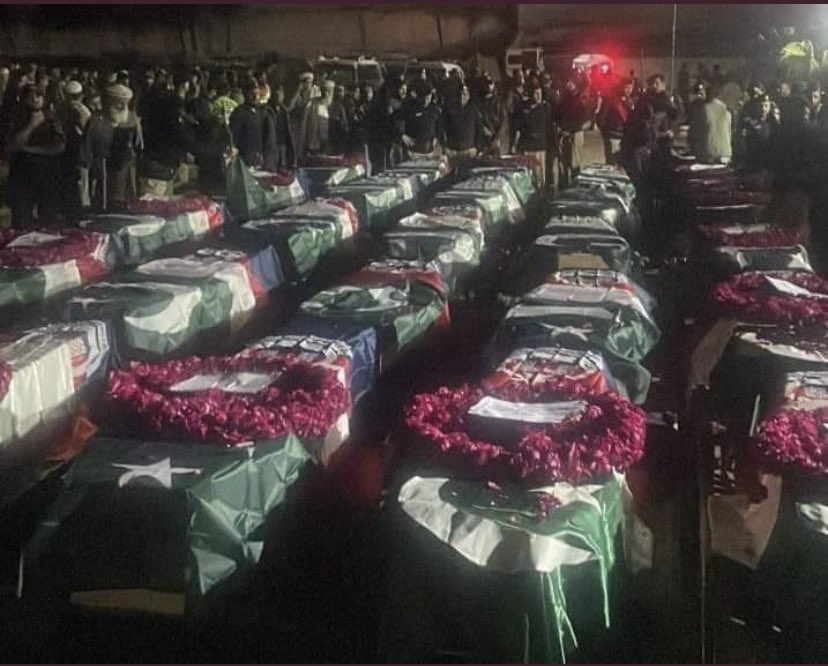

The deadly suicide bombing a Peshawar Mosque killed nearly 100 policemen
The fallout of the deadly suicide bombing in a Peshawar Mosque that killed near 100 Pakistani policemen continues to echo within the Pakistan Taliban circles and Jihadi groups operating in the AfPak region.
A major faction of the TTP, the more formal name of the Pakistan Taliban, took responsibility for the bombing and gave details about the plot, but the Pakistan Taliban Central denied having undertaken the strike. The contradictory statements give the impression of a faction-fight inside the TTP, but it is also possible that the group is deliberately speaking with a forked tongue to sow confusion to put its enemies off-guard.
Nevertheless, it is interesting that Sarbakaf Mohmand from TTP Mohmand chapter has been quoted as saying that a 25-year old youth, Huzaifa, who was studying in a seminary at the Mohmand agency carried out the strike. “We have carried out the attack to take revenge for our leader Omar Khalid Khorasani’s assassination. It took us 3-4 months to plan this attack.”
He pointed out that the plot was hatched in a house in Peshawar.
Incidentally, the TTP Mohmand faction was previously called the Jamatul Ahrar (JuA). It had broken away from the TTP in 2014, but the group re-merged with the TTP in 2020.
The killing of its leader Omar Khalid Khorasani last year during peace talks has apparently triggered a wave of revenge attacks by the TTP’s Mohmand faction.
The Peshawar was therefore the fourth retaliatory suicide bombing to avenge the slaying of their leader, according to information provided by the Khorasan Diary twitter handle.
The other strikes were carried out in November 2022 in Quetta and, a month later, in Islamabad. The third strike took place in the Jamrud area of Khyber Pakhtunkhwa earlier this month. The Jamrud area is the gateway to the famous Khyber Pass.
The attack on the Peshawar Mosque has triggered heated arguments among Jihadi groups, including the Islamic State and its affiliates.
Those who support the bombing include the sectarian outfit Lashkar-e-Jhangvi. A Deobandi Sunni jihadist militant organisation based in Afghanistan, it is an offshoot of anti-Shia party Sipah-e-Sahaba Pakistan. The group congratulated the Mohmand faction for the Peshawar attack.
There is also some evidence of overlapping claims by the TTP, the ISKP and Islamic State Pakistan (ISPP), signalling the growing influence of the Islamic State on the Pakistan Taliban, visible since December 2021.
For instance, the TTP and the ISPP claimed an attack in Islamabad. A month later, a similar occurrence took place in Rawalpindi.
Six other incidents of dual ownership have taken place between the TTP and the ISKP. Significantly, most of these incidents took place in Peshawar and adjoining Jamrud area, indicating some connection of the factions of the two areas.
It is possible that a new round of tensions is brewing between the TTP’s top leadership and the more radical factions. This could be because the leadership of Afghanistan, a country that provides TTP strategic depth, wants the group, at least officially, to distance itself from terror attacks.
The more extreme elements inside the TTP include the Mohmand chapter leader and Central Shura member Omar Mukarram Khorasani. Others include Sarbakaf Mohmand, the so-called shadow governor for Zhob province Balochistan.
On the contrary, TTP official spokesman Muhammad Khorasani was the face that issued a statement through Umar Media claiming that the Pakistan Taliban was not involved in the deadly Peshawar attack.
Muhammad Khorasani, the spokesperson of TTP was quoted as saying by the The Khorasan Diary that, “We have not accepted responsibility and there are tens of accounts on social media but the official account is only Muhammad Khorasani & Umar Media. No responsibility has been accepted from these accounts.”
He added that TTP’s conflict is with the security agencies and that even though the police are also a part, the place where policemen have been killed and the condition in which they were killed is not part of the group’s policy.
He maintained the group has a complete system of Special Suicide bombing Forces, and they have complete control over it, dismissing any reference to accounts claiming the operation in the name of the TTP as fake.
Also Read: As death toll reaches 100, Pakistan Taliban denies it masterminded deadly mosque bombing in Peshawar
Prime Minister Narendra Modi interacted with members of the Indian diaspora here on Wednesday as…
The city of Hamburg in Germany is set to host the 11th edition of India…
The International Atomic Energy Agency (IAEA) has confirmed that two Iranian centrifuge production facilities, TESA…
The human rights department of the Baloch National Movement (BNM), Paank, has strongly condemned the…
In a major boost to India's coastal defence capabilities, the Indian Navy on Wednesday commissioned…
Volker Turk, the UN High Commissioner for Human Rights, on June 17 expressed concern over…